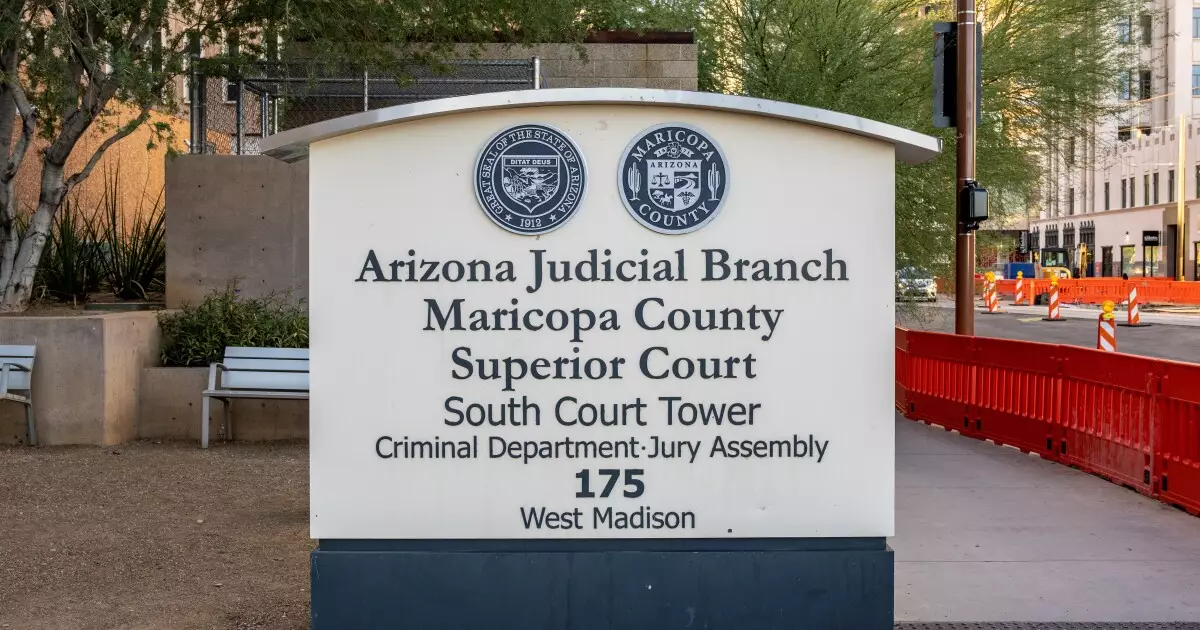The town of Gilbert, Arizona, recently found itself embroiled in a legal controversy that raises significant questions about the intersection of municipal governance and state constitutional law. The Goldwater Institute, a conservative think tank known for its advocacy for limited government and individual liberties, has filed a lawsuit alleging that Gilbert’s town council overstepped its constitutional authority by approving tax increases intended for infrastructure projects. This legal challenge is not an isolated incident; it echoes previous litigation involving another Arizona town, Payson, where similar concerns about tax increases and financial decision-making were raised.
At the heart of the lawsuit is an interpretation of the Arizona Constitution that explicitly prohibits municipal entities from imposing transaction-based taxes. The Goldwater Institute argues that the Gilbert town council’s decision to raise sales, use, and lodging tax rates is unconstitutional, as it conflicts with provisions designed to protect taxpayers from what they perceive as intrusive government financial practices. The legal claim suggests that such tax increases for the purported goal of raising $55 million annually may violate the state’s constitutional guidelines, which were established to safeguard taxpayer interests and limit governmental overreach.
Local reactions to the town council’s tax increases highlight a divide within Gilbert’s community. On one side, proponents of the tax increases argue that the funds are necessary to address pressing infrastructure needs across the growing town, which boasts a population exceeding 280,000. Specifically, the town has identified 23 critical projects, ranging from parks to public safety initiatives, with a cumulative cost of over $700 million. Advocates suggest that without these tax increases, necessary improvements to the quality of life for residents could be severely hampered. Conversely, opponents, including the Home Builders Association of Central Arizona, assert that the tax hikes place an undue burden on residents and negatively impact business growth and local development.
The broader implications of the lawsuit extend beyond Gilbert, as they shed light on fundamental issues regarding local governance and fiscal responsibility. Gilbert’s decision-making process, which included fast-tracking tax increases under the premise of urgent infrastructure needs, mirrors trends in other municipalities that may be grappling with similar challenges as they seek to balance budgetary constraints with public demands for services. The Goldwater Institute’s aggressive legal pursuit may not only influence Gilbert’s financial strategies but could set a precedent for other municipalities in Arizona, prompting them to reevaluate how they fund essential services while remaining compliant with state constitutional mandates.
The Road Ahead
As legal proceedings unfold, both the town council and the Goldwater Institute will prepare to present their cases in court. Gilbert’s officials have yet to issue a formal response to the lawsuit, which could indicate that they are carefully considering their options moving forward. Ultimately, this case serves as a crucial test of legal interpretations concerning municipal taxation powers and could spark a widespread discussion about how towns across Arizona and beyond manage community financing amidst growing demands for infrastructure improvement. With the stakes high for residents’ financial health and the integrity of local governance, the outcome of this lawsuit will likely have lasting impacts on Gilbert and similar communities in the region.

